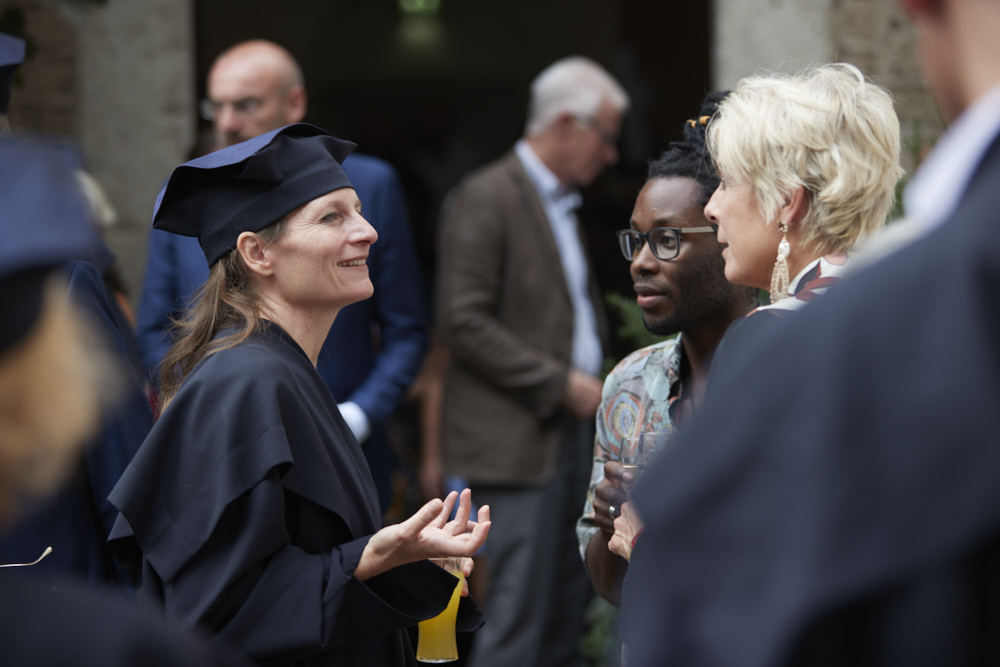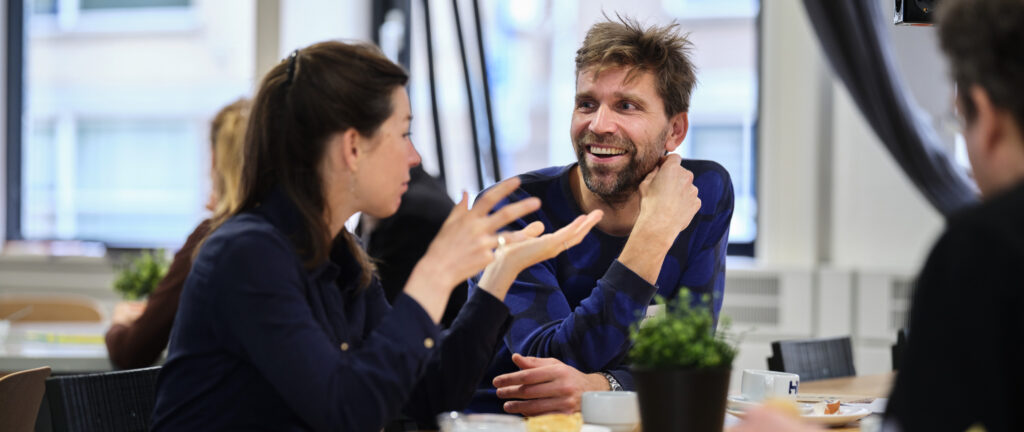Quality assessment of UvH programmes very positive
The bachelor’s programme and three master’s programmes offered by the University of Humanistic Studies are of high quality and are characterised by academic depth combined with skills that are well suited to the labour market. This is the essence of the report by the independent educational review that takes place once every six years.

The visitation, conducted in accordance with the assessment framework of the Dutch-Flemish Accreditation Organisation (NVAO), provides a clear picture of the strengths of the UvH programmes and of the UvH as a university.
Director of Education Doret de Ruyter: “The University of Humanistic Studies aims to educate students to become academically and personally developed professionals who want to contribute to a dignified existence for everyone. In order to achieve this goal as effectively as possible, we strive to ensure that studying and teaching are meaningful and purposeful activities. The independent committee has assessed whether we are achieving this goal, and it appears that we are succeeding. We are therefore extremely pleased with the positive assessment of the review committee.”
Academic depth and relevance to society
Graduates of the interdisciplinary Bachelor’s programme in Humanistic Studies distinguish themselves “through their broad academic knowledge, knowledge in the field of philosophy, research skills and professional competencies”. Students conduct “independent and critical research, with a solid academic foundation and social relevance”. The learning environment is characterised by stimulating teaching methods and “an inclusive, small-scale setting in which students receive a great deal of personal attention”. All of this contributes to the “coherent development of personal growth and academic skills”.
Unique profile and versatile professionals
The Master’s programme in Humanistic Studies has ‘a unique profile and trains students in the broad field of spiritual care in a social context, which focuses on guidance, counselling and policy-making, training and research.’ ‘After completing their studies, they will have insight into how individual questions of meaning are interwoven with the structure of organisations and society.’ The panel is positive about the broad employability and the strong connection between academic education and professional practice.
Enriching and new perspectives
Graduates of the Master’s programme in Care Ethics and Policy distinguish themselves through their ability to deal with ethical and philosophical questions in care and welfare practices at an academic level and to independently conduct, apply and communicate practice-oriented research. The panel observes that students are proud of their title as “care ethicists”. ‘They find the programme enriching and say they have developed new perspectives that are less common in other programmes.’
Relevant and meaningful
The Master’s programme in Citizenship, Professionalism and Civil Society combines academic training with “a strong connection to practice through internships, guest lectures and collaboration with social organisations.” ‘Students find the programme relevant and meaningful because it allows them to connect current social issues with their own professional context.’ Students also appreciate the wide range of career opportunities, ranging from public services and interest groups to education and government.
Atmosphere and sense of community
In its assessment of the facilities, the review panel notes that the historic building in which the UvH is located presents challenges in terms of maintenance, climate control and accessibility, but at the same time, the panel recognises its value in terms of atmosphere and community spirit. ‘Contact between students and lecturers is accessible, and both students and lecturers feel that their voices are heard.’
Finally, the panel concludes that the university has a sound quality assurance policy. ‘The policy ties in well with the educational vision, enjoys broad support, and includes a clear improvement cycle, critical self-reflection and active involvement of the programme committee, examination board and university council. Moreover, the small scale and informality demonstrably contribute to an open quality culture.’


